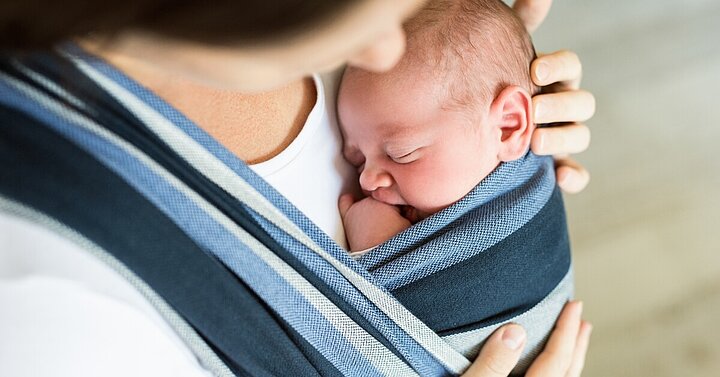Financially adjusting as a new family
Newborn | | Clare Seal
When starting or growing your family, finances are important to take into consideration - not only for the sake of your financial security, but in order to protect your wellbeing, too. Money worries can cause a lot of stress for new parents, at a time when you may already be making big adjustments in terms of work, socialising and pretty much every other aspect of your lives.
The best way to deal with your new financial situation is by planning, preparing and being flexible - and remembering that any adjustments that you need to make to your lifestyle won’t be forever.
Adjusting your lifestyle for less disposable income
One of the many ways in in which life changes when you welcome a new addition to your family is that the balance of your income and outgoings can be thrown out of kilter. Couples often find themselves needing to accommodate a reduction in income - both temporarily due to parental leave and longer-term if one parent reduces their hours - at the same time as they are trying to accommodate the additional financial demands of an extra person to look after. This can be a shock to the system but, with careful planning, it can be managed in a way that still allows you to enjoy life with your new baby.
There are likely to be some changes to your lifestyle that happen almost automatically, due to the demands of looking after your little one. For example, you might find that socialising costs take a back seat, or shift from expensive dinners out to lower-cost coffee and lunch dates, or hosting more at home. In order to rebalance your budget, though, you may need to make some conscious changes to how you spend. Depending on how much your finances are affected - for example, how much maternity pay you get, how much leave you take, whether you have help with childcare and how high your salary is, all of which can have a huge impact - this might mean anything from switching to more modest holiday plans or changing your car to something more practical, to switching to a cheaper supermarket or cutting down on non-essential spending for a while.
If you’re anticipating that things will be tighter once your new baby arrives, there are two key things that can really help you to absorb the shock: saving an emergency fund and paying off your debts. Reducing debt has the potential to decrease your monthly outgoings, as well as reducing your financial liabilities, while having a financial safety net in the form of some easy-access savings will give you peace of mind in case something unexpected happens.
How to adapt your monthly budget to life with a baby
While the changes you might need to make overall can feel overwhelming, breaking your family finances down into a monthly budget could help you to feel calmer and more in control. Start by listing your existing monthly outgoings against your new monthly income, and then slowly make adjustments to your expenses - removing things that you will need to cut or put on hold, and adding new expenses that will crop up when your baby arrives - to create a balanced budget., Begin with the things that you will miss the least. Think carefully about what adds value to your life and what doesn’t, and use that to guide your decision-making process. You might even find that it helps you to have a better relationship with money in the long run.
It’s important to review your budget every month or so, so that you can adapt it to changing circumstances over the first few years of your child’s life. Put some time in to do this together with your partner on a regular basis, so that everyone remains in the loop.
How to budget for necessities and cut non-essential costs
Your family budget might look quite different from your child-free budget, with higher essential bills and less household disposable income to spend on luxuries, but you will adapt over time. Having to plan and budget for treats like meals out, getaways, clothes and beauty treatments can actually make you appreciate and value them more, and you may find that your perspective on saving and spending changes as you learn to budget in a new way. Where possible, ring-fencing some money each month, even if it’s just a small amount, for an ‘enjoyment fund’ can stop you from feeling deprived or resentful.
One of the biggest impacts to your budget is likely to be childcare, the cost of which is a huge consideration in managing your return to work. Government help is available for this, so make sure that you’re clued up on what you’re entitled to. You might also find that buying in bulk for things like nappies and snacks helps you to keep your living expenses down, while buying preloved baby items and selling anything that they grow out of can help you both to save money and make a little extra money at a time when you have to work harder to keep things balanced.
Planning for your family’s long-term financial security
It’s normal to feel the pinch when growing your family, especially when your children are babies and toddlers, but it’s important not to lose sight of your long-term family financial goals. Many families find it helpful to speak to a financial advisor about building some wealth and financial security for the future, but there’s plenty of financial planning that you can do on your own, ahead of any conversations with a professional.
If you have a partner, this is definitely something to share with them, so set aside some time to discuss your financial priorities and set some goals for the years to come, including whether and how much you’d like to save for your child’s future, the kind of lifestyle you’d like to have as a family and any big changes like moving house or changing career.
It’s almost inevitable that starting a family will create a big shift in your financial situation, at least temporarily, but adjusting your expectations and priorities - and reflecting this in how you budget and spend your money - will help you to move forward and find a new lifestyle that is both enjoyable and affordable.


